


Our education, research, scholarship and creative activities, and service are designed to accelerate solutions to humanity’s grand challenges—within our communities and around the globe.
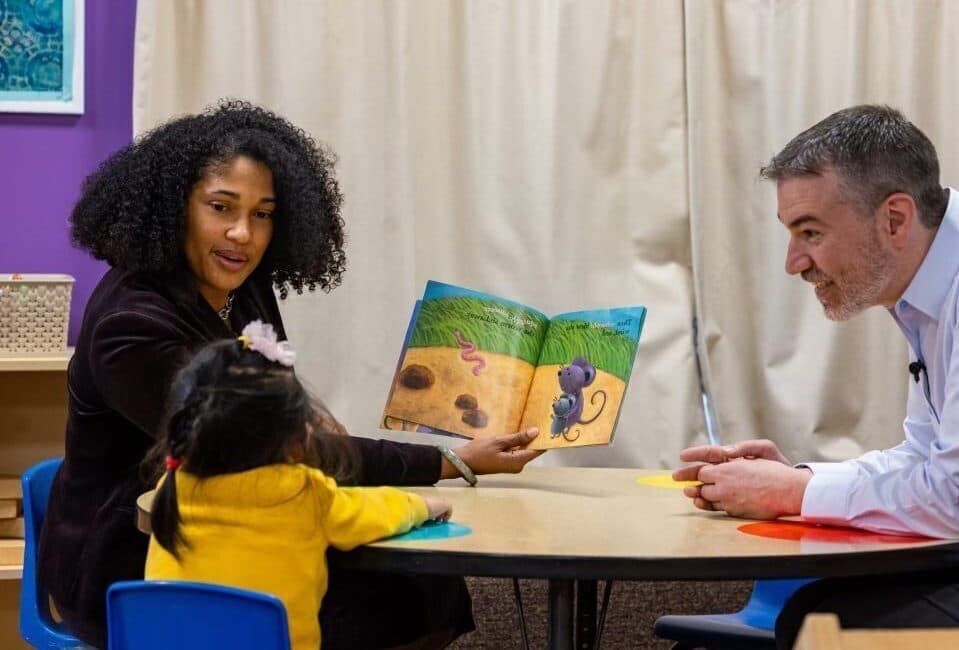
The University of Maryland’s largest and most comprehensive program of its kind, the Grand Challenge Grants program is investing $30 Million in institutional funds to support initiatives and projects designed to accelerate solutions to the grand challenges of our time.

Grand Challenges Grants
The 50 Grand Challenges Grants projects are accelerating solutions to humanity’s grand challenges within our communities and around the globe through education, research, scholarship, creative activities and service. The program also provides unique learning opportunities and research experiences for students, including internships, new courses, field data collection, technical training, co-authorship of publications, research presentations and study abroad.
Since launch, the projects have demonstrated an unprecedented cumulative impact:
$25M in external funding has been secured by Grand Challenges grantees, doubling since the previous year
100% of colleges and schools across campus are involved, and each is involved in at least two projects
29,300 external stakeholders have been engaged, tripling since the previous year
2,650 internal stakeholders have been engaged, including 835 faculty, 315 staff, and 1,505 students
88% of Grand Challenges projects have provided student engagement opportunities
300 partnerships have launched or expanded
100% of Maryland counties have been impacted

The Maryland Democracy Initiative brings together experts in education, journalism, political science and public policy to lead research, teaching and outreach programs to encourage civic engagement and participation in a healthy democracy.

Maryland Democracy Initiative
The Maryland Democracy Initiative is a nonpartisan program launched in 2023 with funding from a Grand Challenges Impact Award.
MDI has received financial support from Marsha ’64 and Henry Laufer, most recently a $6 million gift to support projects to boost civic literacy and democratic engagement in K-12 classrooms, higher ed and beyond, including the creation and dissemination of teaching materials, research on effective instructional methods and development of training for educators at all levels to incorporate civic learning opportunities. The Laufers also gave two $100,000 gifts funding voter research and mobilization efforts and establishing the Laufer Democracy Internship Program.
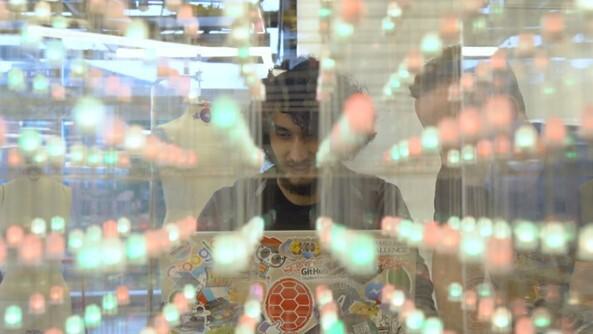
The Artificial Intelligence Interdisciplinary Institute at Maryland is a collaborative hub for AI, supporting faculty research, offering innovative and experiential learning opportunities, and focusing on responsible and ethical AI technology to advance the public good across industry, government and society.

Artificial Intelligence Interdisciplinary Institute at Maryland (AIM)
In spring 2024, the university launched the Artificial Intelligence Interdisciplinary Institute at Maryland (AIM) dedicated to developing the next generation of artificial intelligence education, technology and leaders.
AIM fosters an inclusive interdisciplinary environment, bridging faculty and students from non-traditional and traditional technical fields. AIM has gathered nearly 200 university affiliates across colleges and schools, and announced it would begin the hiring of 40 faculty positions over 10 years.
AIM has collaborated with partners across campus on programs and events serving over 300 members of our campus community, including the launch of its own Distinguished Lecture Series. In December 2024, they launched a grant program to support the development of cutting-edge, interdisciplinary AI-related courses, and a seed award program to support the development of innovative, interdisciplinary research projects that leverage AI to address our most pressing societal issues. They received nearly 140 applications across both programs.
The AIM team has hosted and collaborated on programs and events serving over 250 members of our local, state, and national communities, and developed partnerships at the local, state and national level. Partnerships with organizations like the Prince George’s County AI Taskforce, National Federation of the Blind and the Maryland State AI Clinic Pilot Program address societal needs, influencing policy and education.
AIM is currently developing Bachelor of Arts and Bachelor of Science in Artificial Intelligence degree programs.
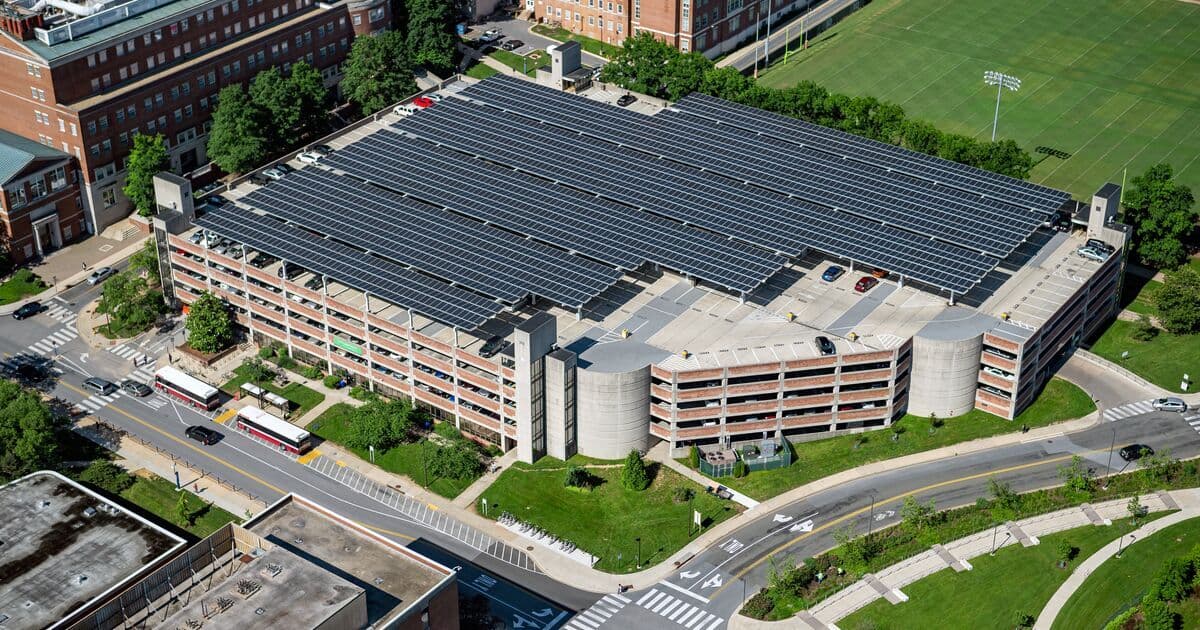
The Climate Action Plan outlines UMD’s efforts to meet its carbon-neutral and fossil-free campus targets through a mix of infrastructure improvements, electric vehicle purchases and targeted investments in sustainability.

Climate Action Plan Goals
Through its Climate Action Plan, the university strives to meet the following ambitious targets for all scopes of emissions:
Carbon neutrality (net-zero carbon emissions) by 2025
Zero-Emissions Vehicle (ZEV) fleet by 2035
Fossil-fuel free central energy plant by 2035
In 2024, the Office of Sustainability published the third comprehensive update to UMD’s Climate Action Plan (CAP 3.0) to reach net zero carbon emissions. With 37 strategic pathways to implement in its next phase of climate action, UMD continues to work to decarbonize and engage relevant audiences. Plan pathways address power, heating & cooling, refrigerants, agriculture, fleet, land use management, solid waste, air travel, commuting, purchasing, education and research.
Collaborating departments leading implementation of CAP 3.0 pathways have made significant progress:
Gained approval to move forward with the NextGen Energy Program to modernize the campus’ aging energy system
Placed 51 electric vehicles (EVs) into service on campus, and completed an EV infrastructure master plan outlining charging infrastructure and investments required to support full fleet electrification
Achieved a 12% decrease in energy consumption from existing facilities compared to 2018, leaving only 8% to achieve the 2031 target of a 20% reduction
Submitted a proposal for $1.15M in funding from Maryland Energy Administration to support solar panel installation on campus and workforce development programming
Completed a Campus Bikeways Project feasibility report and began installation of new campus bike lanes
Facilitated a faculty and academic staff work group to design an annual process for assessing students’ sustainability literacy.
The university is on track to meet each of its goals.
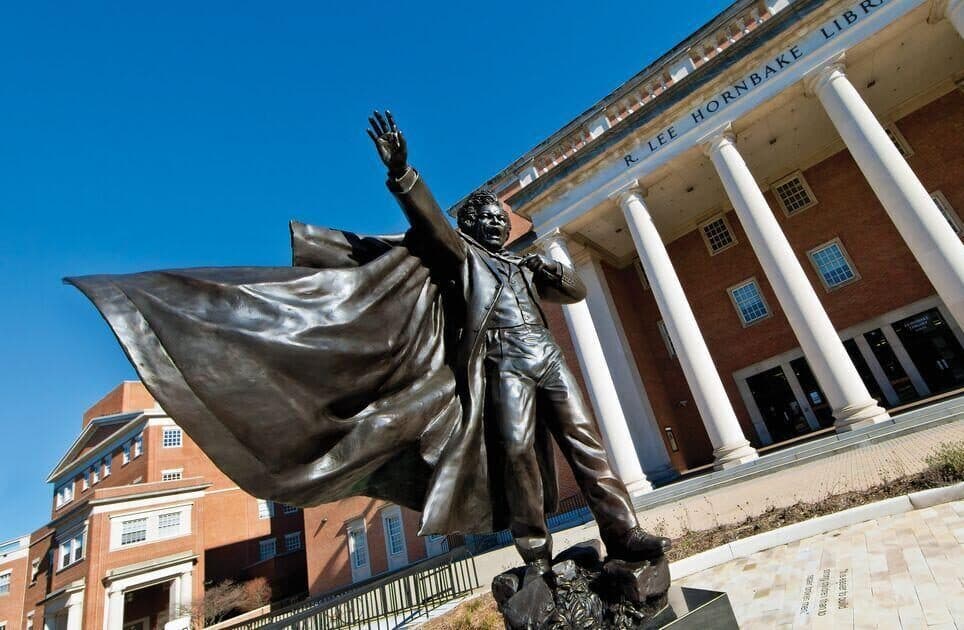
The 1856 Project provides a narrative of the University of Maryland’s history that embraces its past, and stands firm in the challenges and achievements of its present.

1856 Project
The 1856 Project investigates the history of the African American experience on campus and in the surrounding community, analyzes documentation on the University of Maryland’s history, and publishes findings to campus stakeholders and the public.
In 2024, the project launched an initiative that empowers ten scholars, including University of Maryland affiliates and community members, to conduct year-long research projects focused on the history of the Maryland Agricultural College (MAC), the university's predecessor.
The project also launched its first Annual Research event. It showcased research findings from various project participants, including 1856 Project members, Summer Research Initiative participants, and community historians, fostering collaboration and knowledge sharing.
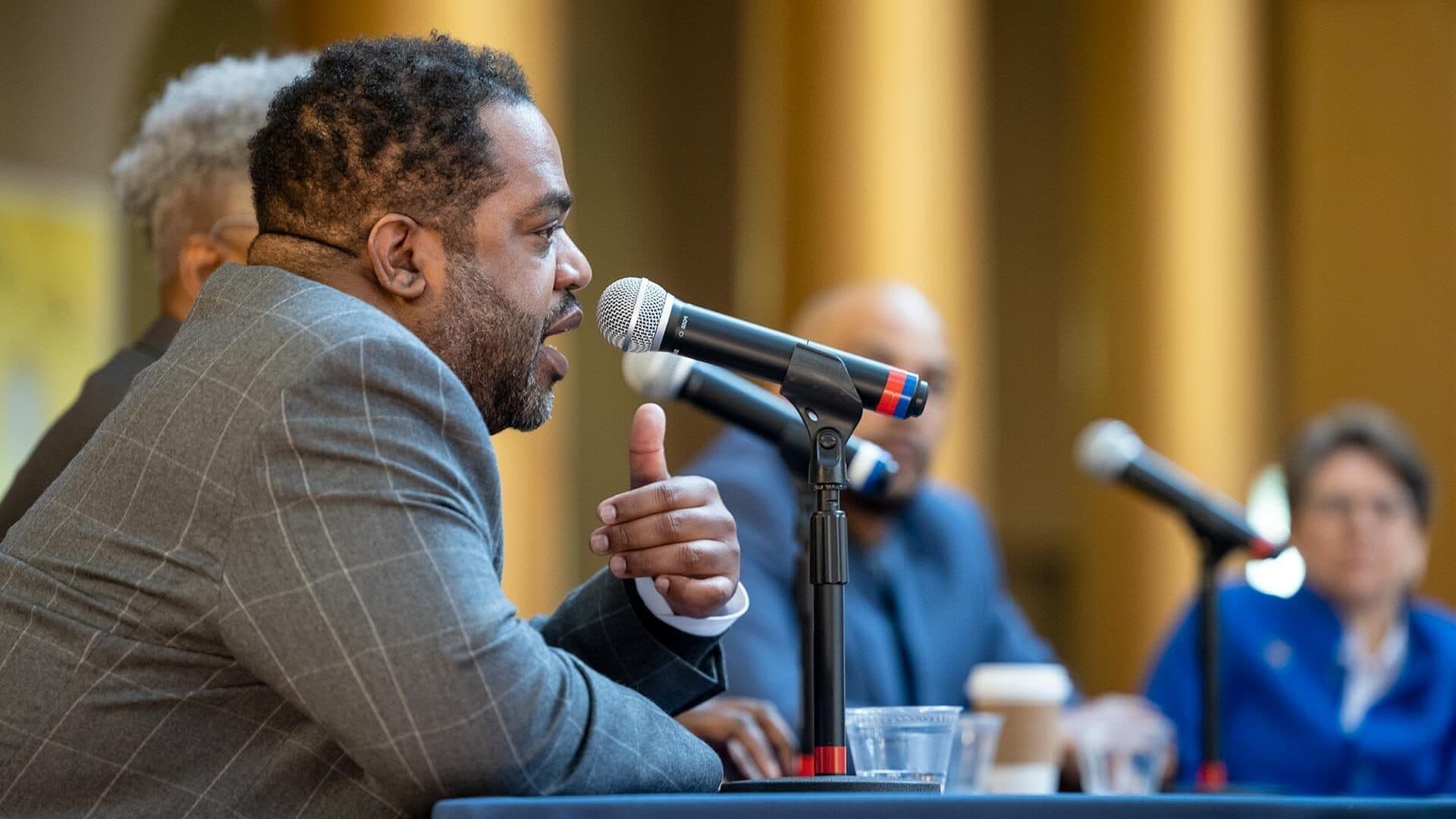
PROGRESS uses innovative technologies, multidisciplinary translational science, and mutually beneficial university-community partnerships to reduce and prevent gun violence.

PROGRESS
Prevent Gun Violence: Research, Empowerment, Strategies & Solutions (PROGRESS) educates and engages students and faculty, and partners with colleagues and community leaders, to transform scientific knowledge into community actions.
In 2024, PROGRESS appointed 12 PROGRESS Scholars and awarded three seed grants to advance innovative ideas in gun violence research that have the potential for high impact. The projects cover the topics of social media, traditional media, and geospatial artificial Intelligence. PROGRESS also received Community Project Funding through the Department of Justice's Byrne Discretionary Community Project Grants program.
PROGRESS has advised officials throughout Maryland and Washington, D.C. on policy matters, and partnered with organizations such as the Alliance of Concerned Men, Marylanders to Prevent Gun Violence and Maryland’s Office of Crime Prevention and Policy.
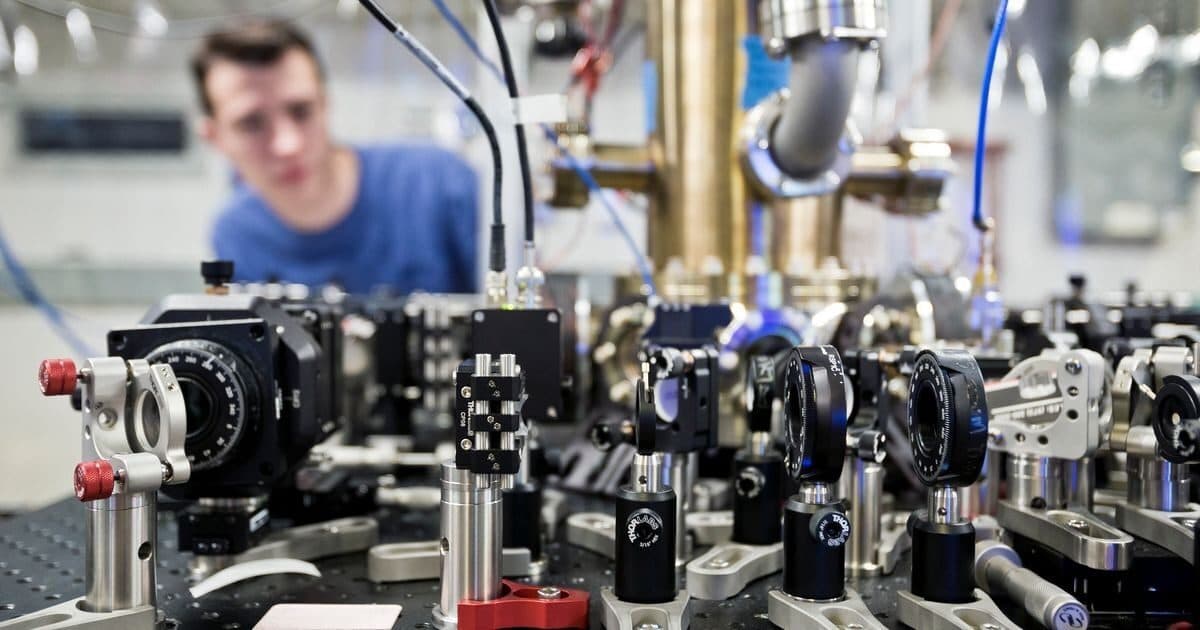
As the Capital of Quantum, UMD is home to an expansive quantum research enterprise that features world-class research institutes, global collaborations and growing government and industry connections.

The Capital of Quantum
UMD is leading the development of a vibrant, globally-leading regional innovation ecosystem that accelerates the development and transition to use of quantum technologies. UMD’s position as the Capital of Quantum is bolstered by Governor Moore’s announcement of a $1 billion quantum initiative anchored in College Park.
The university has invested $100 million in the last three years to broaden and deepen its quantum enterprise. Progress was made on many fronts in 2024:
The National Quantum Laboratory added two new Fellows, renewed its partnership with IonQ and initiated a new partnership with Xanadu.
The Mid-Atlantic Quantum Alliance has continued to grow to 48 members, including five new members in 2024, and launched Sensing and Computing sub-groups focused on life-sciences.
The Quantum Startup Foundry has supported more than 40 entrepreneurs and startups in accelerating quantum technologies’ time to market.
In collaboration with Arts For All, the Quantum & Arts program launched seven projects covering a wide range of artistic media, including AR/VR, music, dance, computational poetry, and sculpture.
The university also recently launched a Master of Science in quantum computing program and a minor in quantum science and engineering.

The xFoundry@UMD initiative aims to incentivize student technological innovations to solve global grand challenges.

xFoundry@UMD
At xFoundry@UMD, students engage in immersive competitions and projects aimed at cultivating the mindset and skills of a founder. Through these experiences, students develop essential qualities such as adaptability, resourcefulness, risk tolerance, and resilience—attributes critical for success in any career. Working closely with teammates, students learn to navigate ambiguity, think creatively under pressure, and effectively tackle complex problems.
In 2024, over 350 students—from 56 different undergraduate and graduate programs—participated in xFoundry activities, and 33 events drew more than 1,900 attendees. The inaugural XPLORE event drew over 350 attendees, including 150 engaged students, 14 insightful speakers, and three expert pitches, all focused on identifying the next big challenge to tackle.
The inaugural Grand Challenge Competition, focusing on school safety, launched with 87 students in 14 teams, representing 26 different programs, working together to develop cost-effective solutions.
In partnership with the UMD Department of Fire Protection Engineering, “Crossfire”—a multidisciplinary team of 14 faculty and more than ten students from 8 disciplines—competed in the XPRIZE Wildfire Competition. Selected as one of 29 semifinalists from a worldwide applicant pool, Crossfire earned a share of the $750,000 milestone prize.
The 2024 Public Art Competition exemplifies xFoundry’s fusion of art and engineering. The resulting installation, set to debut at the 2025 NextNOW Fest, will invite viewers to engage, inspire curiosity, and celebrate creativity’s role in addressing grand challenges.
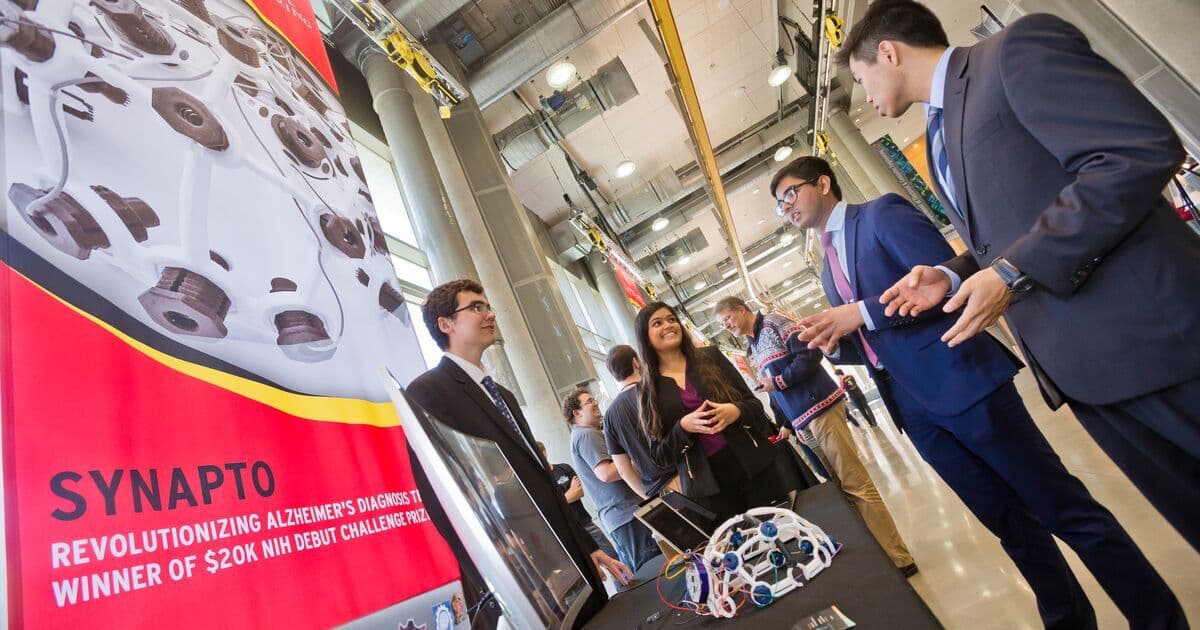
Goal 1
Goal 1
Invest in faculty, student, staff, alum, and partner capacity to take on grand challenges through multidisciplinary and engaged research and curricular innovations.
Objectives
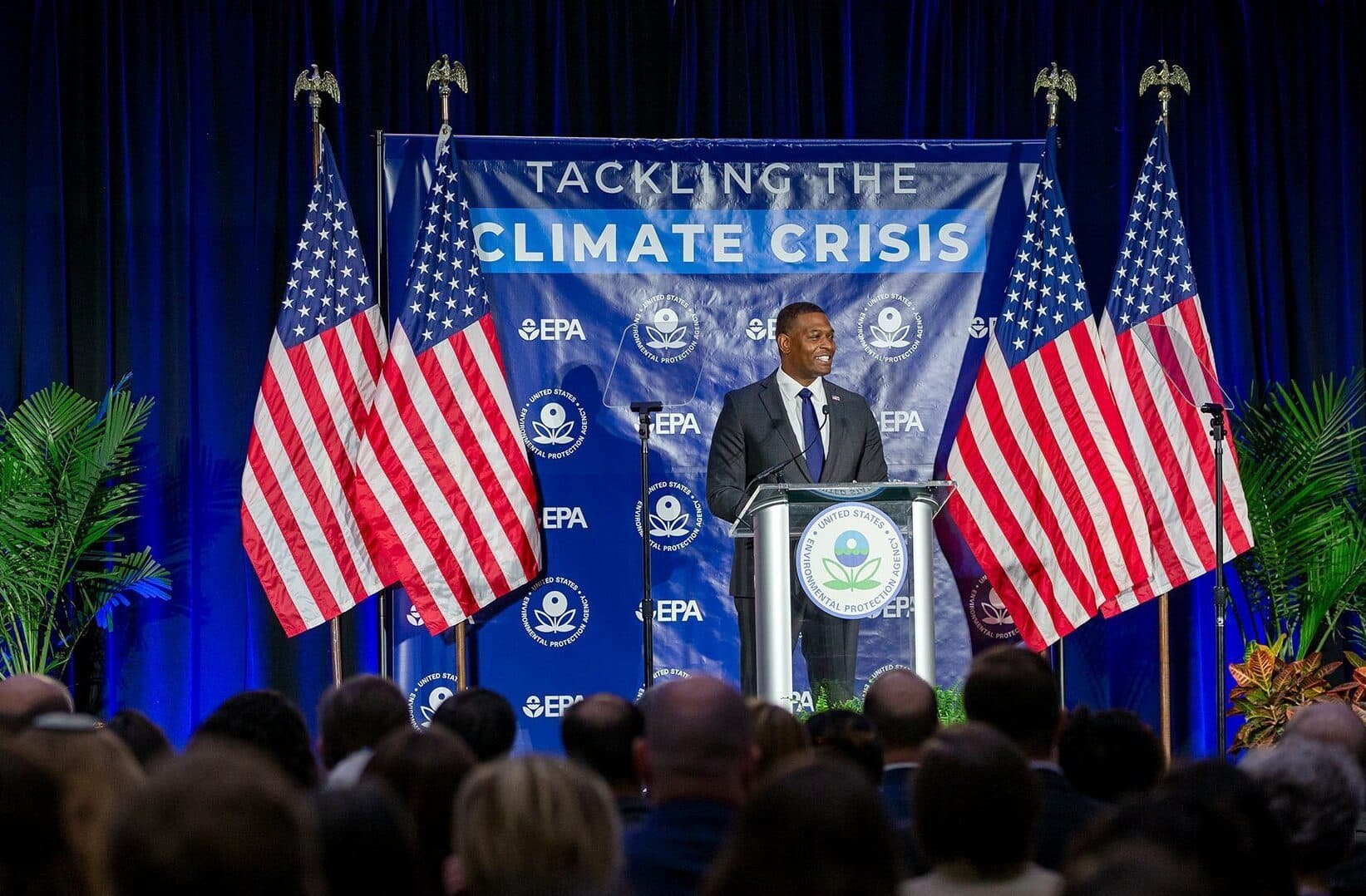
Goal 2
Goal 2
Leverage our location near the state and nation’s capitals to advance and support evidence-based policy that addresses grand challenges at community, state, national, and global levels.
Objectives
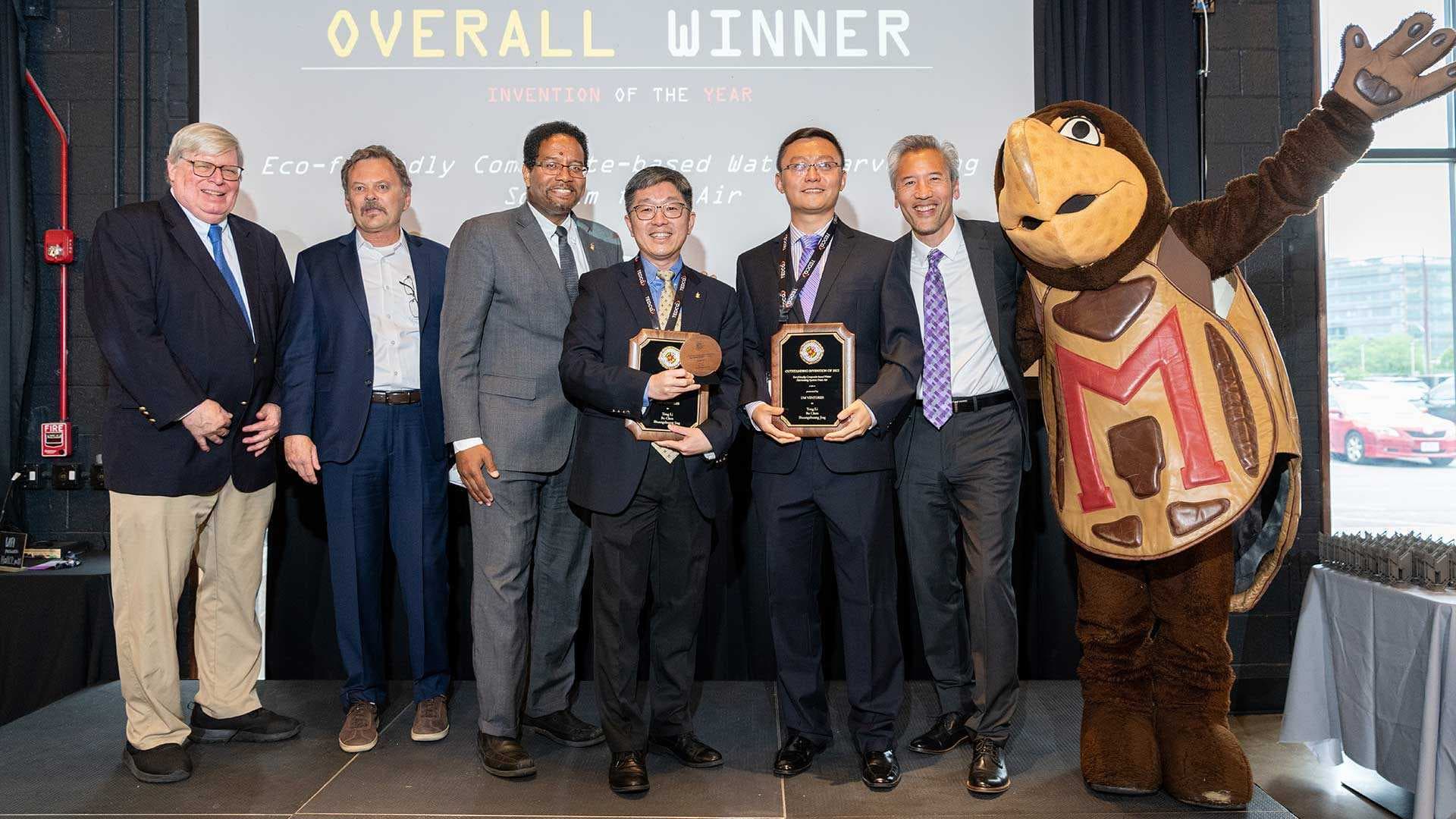
Goal 3
Goal 3
Amplify impactful research, scholarship, creative activities, teaching, and service work through communication, visibility, and translation.
Objectives
FEARLESSLY FORWARD IN PURSUIT OF EXCELLENCE AND IMPACT FOR THE PUBLIC GOOD: THE UNIVERSITY OF MARYLAND STRATEGIC PLAN is a living document and will evolve and grow as we do. Please visit this site to follow our progress as we move fearlessly forward.